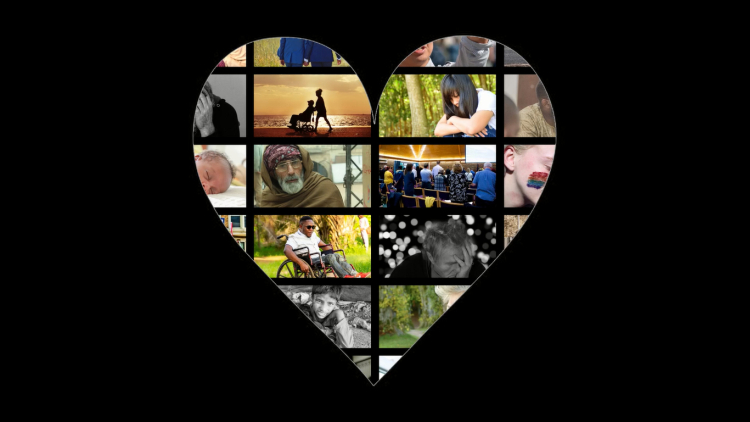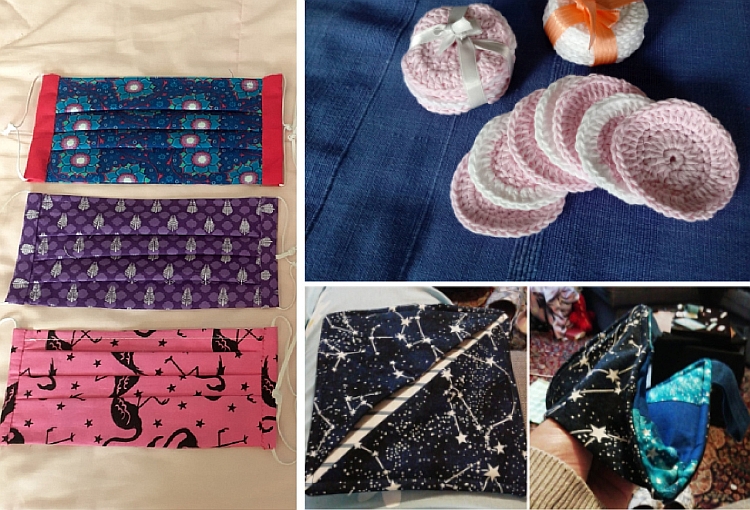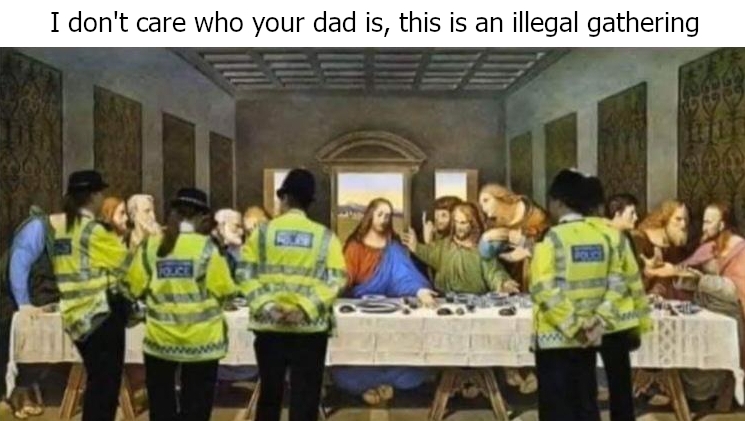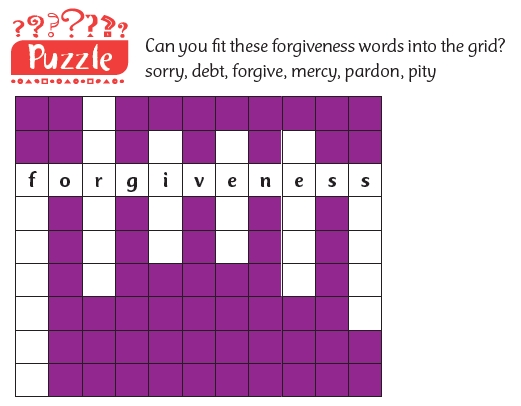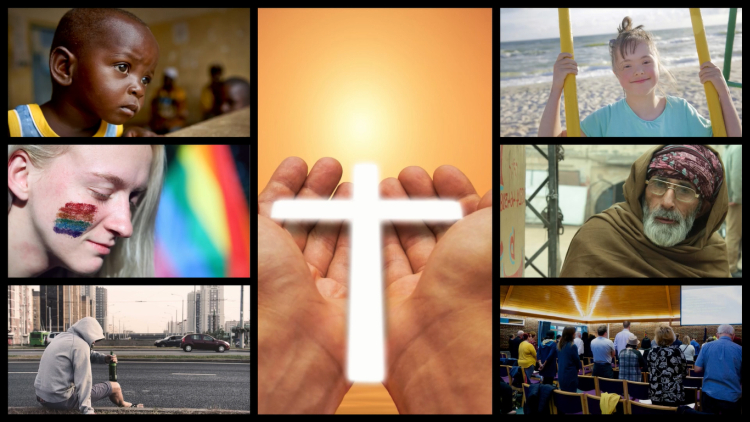
Hello everyone,
Welcome to the latest issue of our church newsletter. Hope that you are all continuing to keep well and stay safe. This newsletter is one of our ways of trying to maintain contact and a sense of community during this time when we cannot meet together as a church family. You can find previous issues of the newsletter here. We would love to hear from you and are looking for uplifting and encouraging content to share in future issues of this newsletter. If you have any ideas or content that we can share, please do email them to Louise (publicity@christchurchuxbridge.org.uk)
We start with our opening prayer:
Searching God: to you no-one is lost. No one is left behind
No one is the price to be paid for the greater good.
Give us the same restless desire; the same fierce joy
Which finds grace in every child of earth and makes a community open to all.
We ask this in the name of Jesus, who loved the world and did not count the cost.
Amen.
Reflection from last Sunday: Inclusive Church
What does it mean to be inclusive? It’s quite a challenge. Although, like the black lives matter movement, we recognise all lives do matter, we have to push those lives that are undervalued to the fore to get them fully valued. That is we say black lives matter not just all lives matter.
Everyone is welcome in our Church, but we have to bring those who feel excluded to the fore and make them overtly welcome until such times as they are and feel equally valued naturally. The Inclusive Church considers there are 6 social issues and this morning we are going to reflect, briefly, on each one and hopefully issue some challenges to set you thinking about what inclusion really means.
Ethnicity
What is Ethnicity? An ethnic group or ethnicity is a socially defined category of people who identify with each other based on common ancestral, social, cultural or national experience. Race, as a social construct, is a group of people who share similar and distinct physical characteristics. Every culture has depicted Jesus to look like themselves even though he was probably an olive skinned dark-haired Mediterranean looking man.
Since the second half of the 20th century, the associations of race with the ideologies and theories that grew out of the work of 19th-century anthropologists and physiologists has led to the use of the word race itself becoming problematic. Although still used in general contexts, race has often been replaced by other words which are less ambiguous and emotionally charged, such as populations, people(s), ethnic groups, or communities, depending on context.
Let’s think about our own church, and about the church more widely. How much does ethnicity make a difference, locally speaking? Does it affect how you are regarded? Does it affect what you can do? Does it affect whether you are listened to? Ethnically speaking, what does our church look like nationally? Does that matter?
Disability
There are 3 types of disabities – physical, mental and intellectual. Do you recognise any of these? Professor John Hull, who died in 2015, wrote extensively about theology and disability, in particular his own experience of blindness. He states, “There is not so much a question of including disabled people in the church; it is rather a matter of the normal church learning how to welcome those who appear to be different…” and “The church will become more truly a symbol of the Kingdom of God when it becomes more faithfully a community of inclusive love.” How can we slow down enough to listen to what people who are different are saying to us? What do we need to be attending to if we are to be an inclusive church for people with disabilities of various kinds?
Gender and Sexuality
Many of us have gone in recent years from just considering two genders – male and female – and to be happy in acknowledging females are often discriminated against. Now we need to move to consider that gender is more complex than that and not just a binary one or other. There are many different gender identities, including male, female, transgender, gender neutral, non-binary, agender, pangender, genderqueer, two-spirit, third gender; and all, none or a combination of these. Maybe a start is to ask what pronouns would you like me to use and not to assume. In a world where same sex marriage is a thing and both of our parent denominations are broadly supportive, why is this still an issue?
Poverty
What do we understand by poverty? Consider this definition from the United Nations.
“Fundamentally, poverty is the lack of having choices and opportunities, a violation of human dignity. It means lack of basic capacity to participate effectively in society. It means not having enough to feed and clothe a family, not having a school or clinic to go to, not having the land on which to grow one’s food or a job to earn one’s living, not having access to credit. It means insecurity, powerlessness and exclusion of individuals, households and communities. It means susceptibility to violence, and it often implies living in marginal or fragile environments, without access to clean water or sanitation.”
There has always been an emphasis in church life on giving alms for the poor. Is charitable giving enough? We see food banks and credit unions being started by churches as a way of helping the poverty on our doorsteps. Does this change our relationship with those living with poverty? If the poor are the blessed of God but we don’t have any real connection with them, what does that say about the quality of our spiritual life? If it is the people who have enough who hold the power in relationships between those experiencing poverty and those with enough, what could we do to make a more equal sharing, not only of resources, but of power and opportunity?
The rich need to feel equally welcome and not just for the money they can give.
Mental Illness
Our Gospel reading (Luke 8:26-39) is one of the most famous gospel passages about someone with mental illness (understood in the New Testament as demonic possession).
At one level Jesus’ greatest gift to the man is to relieve him of the things that torment him. But at another, the healing is not really complete until he is re-integrated into society again, and into his own society at that. So, Jesus sends him home. People with mental illness, just as with those who have mental disabilities, need to belong.
Can people with mental illness find a home in our church? How do we manage people who can make others feel insecure or uncomfortable? How much is there opportunity for meeting people and listening to their stories, thus offering them a space for shalom, the peace that brings healing?
What does inclusivity mean to you? How do we as individuals and as a church show God’s love to those we encounter and provide a welcome to all?
Our readings for this week:
Romans 14:1-12 (NIV)
The Weak and the Strong
Accept the one whose faith is weak, without quarreling over disputable matters. 2 One person’s faith allows them to eat anything, but another, whose faith is weak, eats only vegetables. 3 The one who eats everything must not treat with contempt the one who does not, and the one who does not eat everything must not judge the one who does, for God has accepted them. 4 Who are you to judge someone else’s servant? To their own master, servants stand or fall. And they will stand, for the Lord is able to make them stand.
5 One person considers one day more sacred than another; another considers every day alike. Each of them should be fully convinced in their own mind. 6 Whoever regards one day as special does so to the Lord. Whoever eats meat does so to the Lord, for they give thanks to God; and whoever abstains does so to the Lord and gives thanks to God. 7 For none of us lives for ourselves alone, and none of us dies for ourselves alone. 8 If we live, we live for the Lord; and if we die, we die for the Lord. So, whether we live or die, we belong to the Lord. 9 For this very reason, Christ died and returned to life so that he might be the Lord of both the dead and the living.
10 You, then, why do you judge your brother or sister? Or why do you treat them with contempt? For we will all stand before God’s judgment seat. 11 It is written:
“‘As surely as I live,’ says the Lord,
‘every knee will bow before me;
every tongue will acknowledge God.’”
12 So then, each of us will give an account of ourselves to God.
Further readings from the lectionary this week are as follows:
- Exodus 12: 1-14
- Psalm 149
- Matthew 18: 15-20
Our worship
We are now live-streaming services via Facebook each Sunday at 11am. You can find our services here. You do not have to be a Facebook user to watch this – our services are publicly viewable. This week Ken Pearce will be sharing a reflection with us.
We will be meeting via Zoom immediately after the service for a virtual ‘coffee and chat’. The link for this will be shared in the comments on Facebook during the service.
If you are unable to join us online for our Sunday services, but would like to receive a recording of them on a memory stick to watch at home, please let us know.
Church charity news
Virtual sales table
So far we have the following items on our virtual sales table:
Face masks – handmade by Denise, in a variety of different fabrics. Suggested minimum donation £6
Crocheted face cleaning pads – handmade by Cathy. Suggested minimum donation £3.50 for a pack of 7. Also available are small net bags for washing them for an additional £1 donation.
Pot holders – 6 inch square pot holders handmade by Joanne. Suggested minimum donation £8 each.
Postal Quiz
There’s still time to take part in the postal quiz sent out with the newsletter a couple of weeks ago. Return your answers with your £4 donation by Tuesday 15th September to Cathy Simpson, 16 St John’s Close, Uxbridge UB8 2UX and whoever gets the most correct answers will receive some chocolate and a hand-made face mask.
You can download a copy of the quiz here and find details of the current items on our virtual sales table here.
Gifts and donations can be made online via Virgin Money Giving (https://uk.virginmoneygiving.com/Hopenothate-Christchurch) or by cash or cheque made payable to Christ Church and clearly marked for the church charity.
Children’s Corner
(Taken from the Roots activity sheet © ROOTS for Churches Ltd (www.rootsontheweb.com) 2002-2020. Reproduced with permission.)
From the Circuit Newsletter
A note from the Superintendent Minister
Dear all,
Who could have predicted how things would turn out this year? So much has had to change during the pandemic and I wanted to use this opportunity to thank everyone who has risen to the challenge of doing so much in difficult circumstances. From community outreach, increased pastoral work, new ways of fellowship, new forms of doing worship, preparing our church buildings and so much more. Thank you!
Secondly, amongst all this change we need to stay rooted in Jesus Christ. It is very easy to get distracted and our focus starts to drift. Our focus needs to remain on Jesus. We need to remember that as our world changes around us, God does not. God’s love and care for us remains constant. God is our constant in an ever-changing world.
Thirdly, the challenge is how the Church adapts and changes in the future. How do we learn the lessons of the recent months? How do we ensure as churches we move forwards and take risks for the Kingdom of God? As we work to revive our church mission action plans which form part of our Circuit Mission Strategy with the added dimension of new ways of operating, let us do so with both God’s guiding and a renewed sense of confidence that God is with us.
In Christ’s Name,
Andrew Pottage
Praying for other churches
This week we hold Trinity (URC & Methodist) church in our prayers.
Closing prayer
Into a world of noise and confusion;
into a world that bewilders and even bemuses us at times;
into a world of delight and regret;
into a world of hope and fear;
into a world that is ever changing,
we go with the message of an unchanging God
who gave his all that we might live life to the best of our ability.
God of all, go with us and within us,
this and every day.
Amen.
(Taken from Roots)

